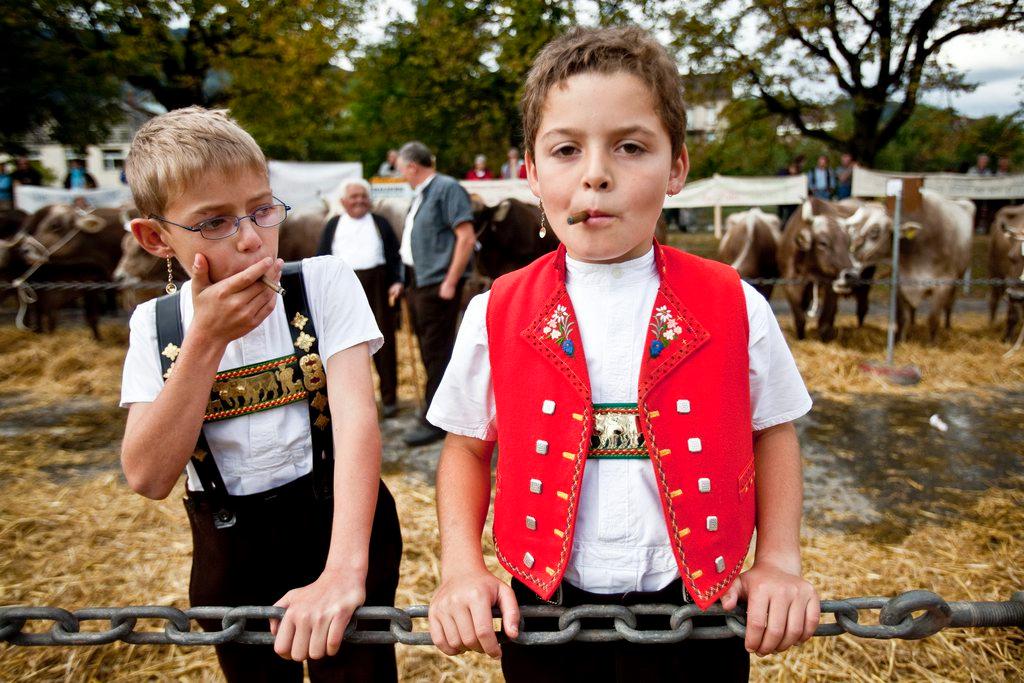‘Men of the Forest’ enter Andermatt

Countless “Woldmanndli” (men of the forest) have emerged from the Gurschen Forest, canton Uri, and noisily entered the village of Andermatt, ringing cowbells and blowing goat horns.
The 600-year-old tradition has nothing to do with evil spirits or terrifying fertility rituals but, perhaps surprisingly, with avalanche protection. In the Middle Ages Andermatt, in central Switzerland, was covered in trees, but as the local population worked their way through these – to build houses and to keep warm – the threat from landslides and avalanches increased.
In 1397, the valley dwellers declared what is now the Gurschen Forest to be a Bannwald (avalanche protection forest). According to Andermatt TourismExternal link, the declaration, which was reaffirmed in 1717 and later, stated under threat of punishment “that no one shall take or carry anything from this forest, not even rowanberries or pine cones, or anything else that is growing or that has grown in the forest, no matter whether it be day or night, and whoever does such things, man or woman, young or old, shall suffer extreme penalties”.
But who would enforce this and prevent any rowanberry theft? The job – from spring, almost as soon as the snow had melted, until shortly before the start of winter – fell to men, probably day labourers, known as Woldmanndli.

The local climate was harsh, even in summer, and they wore jute bags as a kind of protective clothing. Since communication in the forest by voice or hand gesture was limited, the Woldmanndli used instruments made from goat horns.

On Chilbi (town fair) Saturday, when the church tower clock was calling the faithful to prayer, the men of the forest would come down from the Gurschen Forest and into the village wearing their work clothes and sounding their goat horns and cowbells.

They were enthusiastically received by the grateful villagers and the tradition has continued today, becoming noticeably more popular in recent years. In 2004, there were only around 25 Woldmanndli, but by 2010 the number had risen to around a hundred.

In compliance with the JTI standards
More: SWI swissinfo.ch certified by the Journalism Trust Initiative












You can find an overview of ongoing debates with our journalists here . Please join us!
If you want to start a conversation about a topic raised in this article or want to report factual errors, email us at english@swissinfo.ch.